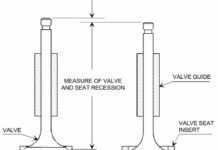Of the surface of the moon, Neil Armstrong once said, “It’s an interesting place to be. I recommend it.” For whatever else he was or was not-heroic astronaut, flight test engineer and pilot, college professor and author-Armstrong was a master of understatement. And when NASA realized Apollo 11 would be the first mission to attempt a lunar landing, it deliberately chose Armstrong to be the first man on the surface because it wanted a focused, inward-looking engineer who would wear the mantle of “first” with durable humility.Armstrong did that and then some. His death over the weekend reminded all of us in the aviation community that post-Apollo, Armstrong spent decades trying to teach us what we could not quite grasp. He insisted that his role on Apollo 11 was mere happenstance, the lucky confluence of having the right skills, at the right time in the right place. He wasn’t chosen, he insisted, he merely showed up for work. In other words, it was the program that mattered, the towering achievement of what Apollo represented, not the point of the spear of crews or individual astronauts. I don’t suspect for a minute that Armstrong veneered himself with false modesty. He was genuine.Of course, for many of us-me included-Armstrong’s press shyness carried with it a tinge of disappointment for the simple reason that the 12 men who walked on the moon-four have died now-represent living history. They remain a flesh-and-blood link to an era when it appeared that anything was possible, when some of the best minds in the world achieved what would have been considered impossible a mere decade earlier. It’s not that we want to know how they felt, but what they thought and what they think now, four decades hence. I never tire of hearing Apollo astronauts interviewed, not because I think they’re heroes, but because in the telling and re-telling, we always learn some new nugget, some fresh perspective on a fascinating age of human exploration.Yet, maybe the lesson Armstrong was trying to convey did finally take, at least for me personally. When I see old NASA film of the lunar program or a command module gracefully orbiting the moon, I don’t think of Armstrong or any of the other individual astronauts. I think of the huge milestone the program represented and of the 400,000 people who contributed to it, just as Armstrong himself said we should.Quirky to the end, Armstrong’s last interview (Link)was with Alex Malley, head of the Certified Practicing Accounts of Australia. (And why not; Armstrong’s father was an auditor.) It’s probably unfair to call Armstrong a recluse. He just didn’t like giving interviews because he reportedly thought it focused too much on him and too little on the program. But as you can see from that interview and this one with Ed Bradley, Armstrong was a thoughtful and engaging man, not the taciturn introvert we sometimes imagined him to be.He may not have said much, but he said enough.
AVweb Insider
My highlights from Sun 'n Fun. What did I miss?
Featured Video
FAA Fit? Wingman Med Backstops
Being properly prepared for your medical can save months of frustration.


































